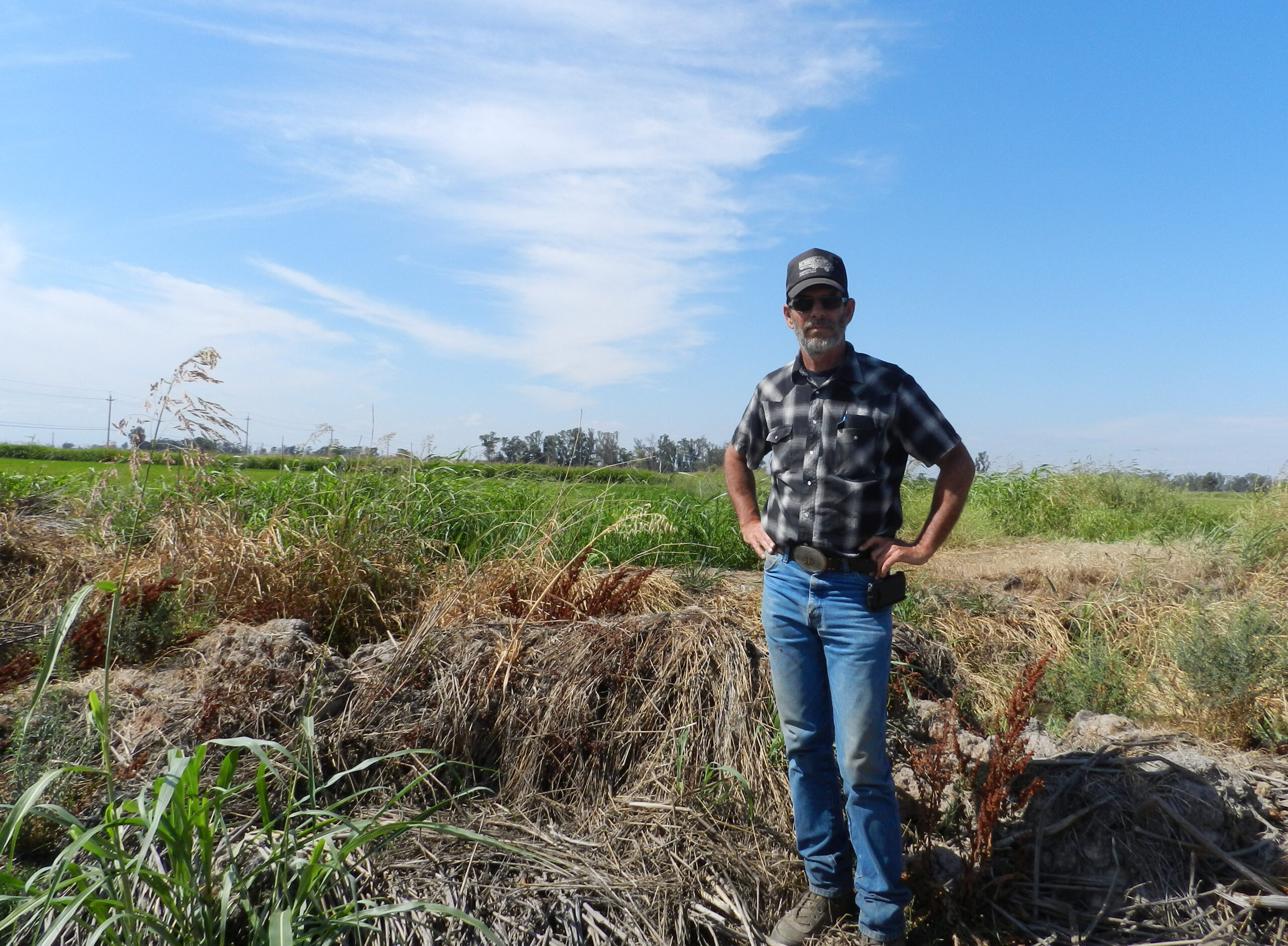For decades, ratepayers and farmers within the Modesto Irrigation District (MID) have benefitted from low water and power rates while enjoying exceptionally good service.
Today, after costly legal battles, lack of transparency, and mounting employee turnover and discontent, the embattled Board of Directors is certain to have at least two new members after the November 8 election, perhaps three if incumbent Stu Gilman is ousted by farmer John Boer.
Whether the new directors will be able to restore employee morale and navigate newly troubled waters brought on by state mandates, an ongoing drought, and threats to the region’s groundwater reserves will largely depend on voters making wise choices.
The dominant theme during the late September Modesto Bee Candidates’ Forum for seats on the MID Board was maintaining “low rates.” The underlying and softly spoken subtext was water sales.
A focal point of controversy was subsidized water costs for MID farmers by the district’s electricity customers. The complicating factor in the discussion is the requirement by the State of California that water districts throughout the state achieve groundwater sustainability within the next 15 to 20 years.
The three candidates who showed best understanding of the complexities involved in maintaining low rates while addressing these intertwined issues were Frank Damrell (Division 2), Robert Frobose (Division 3), and Stu Gilman (Division 4).
There were other prominent issues, most notably transparency. MID Directors have long claimed they can’t separate costs for electricity from costs for water. On the face of it, it’s an absurd claim, since ratepayers get separate bills for each.
It’s also been ruled an invalid position by the courts, but obstinate directors have appealed. The case has already cost the district money and credibility, and seems certain to bring more grief. Oddly, candidate Janice Keating continued to assert the same discredited claim that it’s nearly impossible to separate water and power charges.

Keating was also remarkably complacent about the current board’s many missteps over the last several years. She refused to give the board a letter grade, seemed oblivious to problems brought on by dissension within the board, and was willing to sell water “to whomever” at “market rates.”
One of the more misleading metrics when discussing water, “market rates” generally means to the highest bidder. With southern California buyers paying as high as $2,000 an acre foot and nearby Oakdale Irrigation Disrict farmers paying historic rates below $10 an acre foot, “market rates” really means shopping a region’s most precious resource for whatever deal seems best at the moment.
When MID proposed a water sale to the City of San Francisco back in 2011, public outrage killed the deal, for good reasons. At best shortsighted, in the worst cases selling water can lead to steep declines in property values, depleted aquifers, and rising local rates.
In the recent past, incumbent Director Stu Gilman has favored out-of-district water sales as a means of paying for needed infrastructure maintenance and upgrades. However, demands for water from farmers in eastern Stanislaus County foothills offer the possibility of keeping water local even while improving infrastructure.
Gilman, along with Robert Frobose and Frank Damrell, clearly comprehends current realities imposed by California’s Sustainable Groudwater Management Act (SGMA) of 2014. When asked whether he would support groundwater recharge by selling water to eastside farmers, he said,
“We’re going to end up sending water to the east side whether we want to or not.”
He then added that the binding condition for water sales to the east side is to price water high enough so that the fees would cover the district’s infrastructure and maintenance needs. He is emphatically against MID ratepayers subsidizing east side farmers’ water rates.
Gilman’s willingness to acknowledge the hard realities imposed by drought, state mandates and onrushing climate change was matched only by Frobose and Damrell.
Frobose has a long history of close engagement in local water wars. A veteran opponent of water sales outside the region, he routinely thwarted Oakdale Irrigation District’s (OID) attempts to sell water to buyers in Westlands Water District, even while braving the ire of shortsighted OID farmers who preferred their water rates remain below costs of delivery by selling to distant buyers.

Frobose counts farming among many business endeavors, and has a granular knowledge of local water issues. His overriding motive in running for office is protection of local aquifers and the Modesto subbasin while maintaining affordable rates for all. His dedication to keeping local water local is evident from personal involvement in thwarting OID water sales, a years-long endeavor on his own time and his own dime.
Frobose’s opponent, young Nick DoKoozlian, is obviously bright, but he’s barely into his twenties. His work experience consists of a short stint on the Duarte Campaign for Congress and as an aide to Stanislaus County Supervisor Mani Grewal. While there’s no question he’s highly intelligent, intelligence hasn’t been the problem for the MID Board. The problem has been judgment, and judgment is acquired with experience. Frobose has decades more experience, not just in business, but in the manifold intricacies of water, including water rights, law, and usage.
Like Robert Frobose, Frank Damrell comprehends the necessities, both legal and practical, of maintaining our local aquifer and subbasin while keeping water and power rates affordable for everyone. Just as critically, and unlike Janice Keating, Damrell understands the need to rectify MID’s problems with employee turnover, board dissension, and costly legal entanglements. Like Frobose, he’s been endorsed by the North Valley Labor Federation and MID employees. Those endorsements speak volumes.
Damrell’s work as former State Senator Cathleen Galgiani’s Director of Government Relations and Advocacy gives him on-the-ground experience in Sacramento’s treacherous political jungle, and offers MID ratepayers a valuable asset when dealing with the state’s increasingly complex water rules and impositions.
Perhaps because she was a vociferous member of a notoriously rancorous city council, Keating seems remarkably complacent about MID’s ongoing discord over recent years. Nonetheless, discord on the current board has led to crippling inaction with regard to employee turnover — three General Managers over a span of 18 months — and morale, as well as a growing loss of confidence among staff and the public in general.
The Modesto Irrigation District’s long history of affordable water and power rates faces a mounting crisis from government mandates, demands for local water from distant buyers, climate change, a declining aquifer and discontent among the employees who have made the district great. Robert Frobose and Frank Damrell are best prepared to address these problems.
While Stu Gilman has supported water sales in the past, he also has a tremendous body of knowledge about water and the region as a whole. During the candidates’ forum, he showed a willingness to consider creative tactics when addressing today’s water realities.
Above all, voters should realize that keeping local water local should be the first priority for all MID Boardmembers. Selling our most precious resource is tantamount to trading our heritage and future for trinkets and beads. Robert Frobose and Frank Damrell are by far the most qualified and committed to keeping MID water local, affordable, and sustainable.

Electing Janice Keating would be tantamount to throwing a grenade on an already fractured board. Her hostility, belligerence and inability to work with others while on the City Council was a nightmare for Modesto City Council meetings. She will do the same to the MID.
TALK ABOUT THROWING A GRENADE, I JUST GOT BLOWN AWAY WITH SOME TRULY BAD NEWS:
MODESTO’S BELOVED FEED STORE, J.S.WEST, IS CLOSING PERMANENTLY, ON NOVEMBER 11, 2022.
NO NEW ORDERS TAKEN. ONLY WHAT CURRENTLY EXISTS IN STOCK IS AVAILABLE TO BUY.
20% OFF STORE WIDE..
VALLEY CITIZEN’S ARE GOING TO MISS J.S.WEST!
[…] Story continues […]
Keating again? Hasn’t the public been clear enough?
I did not hear any explanation of how to pay for the deferred maintenance of water infrastructure or whatever it was glossed over with slight mention. I am
not wanting higher rates, yet the surest way to get what you did not yet pay for is by continuing to defer maintenance. Of course it would have helped citizens if a direct question was asked on the topic, since it came up.
So I am asking now. Any candidates willing to respond? I would have really appreciated time for a question and answer segment by viewers to candidates
Personally, I did not get any where near enough transparency to learn what I am looking for. And the voluntary agreement was broached but no detail given by the one person who would know and could have articulated concisely off the top of his head. It troubles me when candidates read off notes on opening and closing comments. It is better to rehearse the elevator speeches, than fumble through.
Why are most candidates unwilling to address with clarity? I do not want local water leaving this locality. Yet hearing confidantes tell me only what they think I want to know, while leaving me to guess the rest, is not at all satisfactory. Half tripped over their own tongues leaving me thinking they may continue to have difficulty getting their heads around extremely difficult tasks such as bringing all the matters to thorough well thought out, balanced, decisions.
Plus, what are the skills some have to assure citizens they can do the job to go along with their stewardship objectives. Do some even know enough? Something this vital requires a certain something I did not see much on display.
May I suggest a different method to finding out more about candidates? Starting with depth to questions asked? Is there anything wrong with the questioners speaking up to require the candidates to actually respond to questions with specificity, or at all? I sense candidates know they can give us the snow job. I want candidates to work harder for the position they tell us they can accomplish. Prove themselves rather than take us for granted.
I do not want an articulate candidate fooling me either. Or, Freudian slips like “I don’t care where the water goes as long as… “. Citizen voters should not have to decipher what is meant by a candidate.
I am glad to hear MID employee turnover was mentioned. This us a huge problem and many current managers are not educated/trained to deal with their direct reports. Plain and simple, the talent leaves after five years of service…
We are in agreement with Robert Frobose. He has much more experience.
I don’t believe that MID’s water infrastructure maintenance has been deffered. It has never been brought up as an issue until Grifter Gilman tried to push his water sale pricing agenda a couple of board meetings ago. MID needs to stop giving free water to special interests if you want to keep rates down.
I am relieved that FINALLY! it is beginning to appear as though the public is going to be unburdened of subsidizing the wealthy farmers. In a just society, the agriculture community would subsidize the electric ratepayers for the next 100 years to level the playing field. (1 more thought…ag rates for irrigation pumps need to be dropped like a bad habit)
I will also be running to knock Stu Gilman off the board in district 4, that is here in Salida,
We are electric customers and are not putting up with any more BS from MID…..
And I wonder if Mountain House even gets a say in this election of the board.